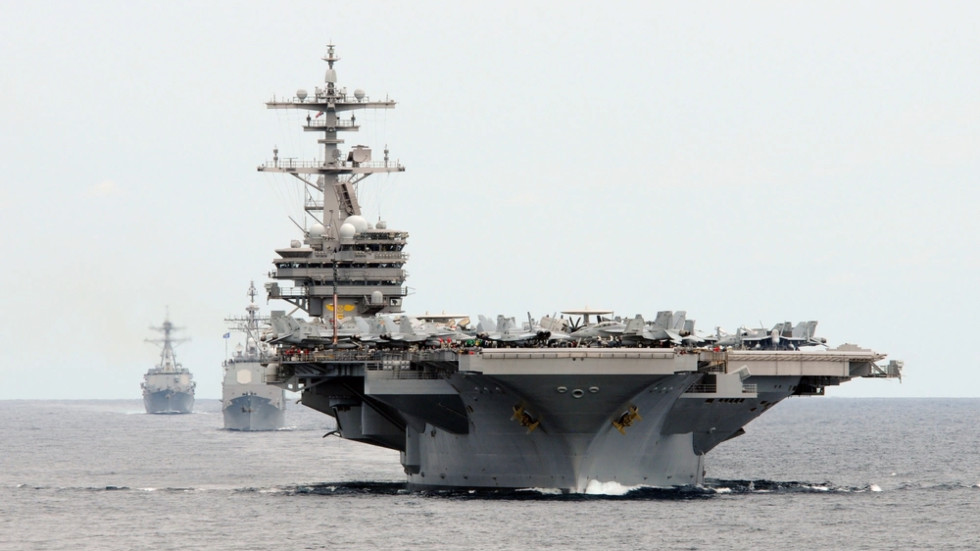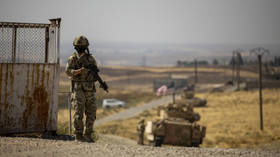
The military also announced an “expedited deployment” of A-10 Thunderbolt attack jets to the Middle East

FILE PHOTO: An aircraft carrier strike group led by the USS George HW Bush is seen during an exercise in the Philippine Sea. © US Navy / MC 2nd Class Samantha Thorpe
The Pentagon has opted to prolong the deployment of an aircraft carrier strike group in the Mediterranean to offer more “options” to officials following recent attacks on US bases in Syria, which killed one military contractor and left multiple soldiers with brain injuries.
US Central Command (CENTCOM), which oversees military operations in the Middle East, announced the extended mission on Friday, saying the George HW Bush carrier strike group would not return to the US on schedule.
“The extension of the George HW Bush Carrier Strike Group, inclusive of the USS Leyte Gulf, the USS Delbert D. Black, and the USNS Arctic, allows options to potentially bolster the capabilities of CENTCOM to respond to a range of contingencies in the Middle East,” CENTCOM spokesman Colonel Joe Buccino said in a statement.

He added that a squadron of A-10 attack aircraft would also be sent to the Middle East for an “expedited deployment,” but did not specify any particular country.
The HW Bush strike group is thought to be in the European Command (EUCOM) area of operations, after the Navy reported a port visit to Souda Bay, Crete on March 10. The stop came just days after the Neptune Strike “vigilance” drill concluded in the Mediterranean, which involved 31 ships, 135 aircraft and more than 8,000 sailors and marines from 21 countries, including the aircraft carrier and its support vessels.
The extended deployment comes after two drone attacks on American military outposts in Syria, which Washington blamed on “Iranian-backed” militant groups. In addition to one contractor killed, 13 other US personnel were wounded in the strikes, including six soldiers who suffered “traumatic brain injuries,” according to the Pentagon.
READ MORE: Iran vows revenge on Israel
The attacks prompted retaliatory US airstrikes that allegedly left eight “militants” dead, though military spokesman Patrick Ryder was unable to specify what group was targeted during a press briefing earlier this week. Tehran, for its part, has denied any involvement in the drone strikes, with Keyvan Khosravi, the spokesman for the country’s Supreme National Security Council, warning that Iran would respond to any attacks on its bases in Syria.




